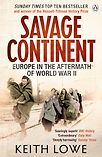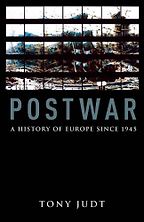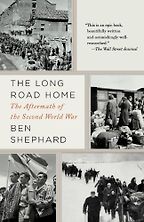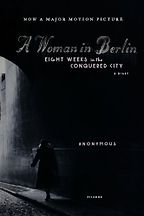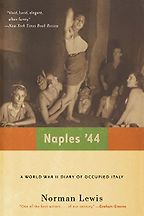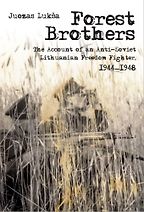It’s very convenient to think of wars as having neat beginnings and endings but that’s rarely the case, especially World War II. Perhaps you could describe for us continental Europe in the months and years immediately after VE Day in May 1945, the date when hostilities officially ended.
Europe, after what we call the ending of the war, was a continent in complete chaos. There were literally millions of displaced people wandering around not knowing where to go. More than 35 million people had been killed and there was physical destruction everywhere. There was also a sense of moral destruction across the continent. People didn’t really know what was right and wrong any more. They were so used to seeing violence and destruction around them that they had begun to look at it as something that was quite normal. That’s the general atmosphere that existed when formal hostilities ended.
What were the consequences of this and how long did the chaos last?
The first thing to say is that all of the institutions that had been taken for granted before the war had been swept away. There was no real government, no police force, no transport infrastructure – there was nothing. With no system to keep law and order in place, people could get away with anything and there was a big wave of crime and violence across Europe, particularly revenge killings.
“There were literally millions of displaced people wandering around not knowing where to go.”
What you have to remember is that the liberation occurred at different times across the continent. In southern Italy it was in 1943, whereas France was a year later in the autumn of 1944, and the closer you get to Germany, the later the liberation comes. So the chaos lasts for different periods in different countries. In central and Eastern Europe it lasted much longer than anywhere else, simply because the destruction was so much worse there – not only the physical destruction but also the human and moral destruction.
We have a good idea how many people were killed during the war, but do we know the number who perished in the lawlessness that followed?
Well, statistics are really tricky when you’re talking about this subject. There are so many different people with so many vested interests to make sure the statistics suit them. For example, in Germany for many years all sorts of groups have claimed that two or three million Germans were killed in revenge after the war. That is generally not accepted any more. The number was far smaller. But to pin down the exact number is very difficult because the whole continent was in such chaos and there was no one keeping records of these things. All that we really can say is that hundreds of thousands of people were either directly killed or died through starvation or mistreatment in the aftermath of the war.
Would it be correct to say that the further east you look, the greater the atrocities were, and it was also harder to get data about them because they fell under the control of the Soviet Union?
Yes, that is true. The general rule of thumb is that the further east you go, the worse the atrocities get and the worse the conditions were for the people who survived the war. Probably the worst of the chaos after the war was in Poland and Ukraine – the Nazis committed their worst atrocities there and the ground was fought over so many times and was repeatedly subject to scorched-earth policies. There was really nothing there at the end of the war, so anybody who was unlucky enough to find themselves in this landscape had nothing to live on and no institutions to rely on, apart from the Red Army, which obviously had other priorities.
Let’s turn to your book choices, which will allow us to talk in more detail about the harsh realities of postwar life in Europe. First, we have Tony Judt’s sweeping history of the continent, Postwar.
There are several reasons why I have chosen this particular book. Firstly, I wanted to choose a book that was a general book on postwar Europe and there are surprisingly few of them about, which is one of the reasons I wrote my latest book. Judt’s book is a comprehensive history of the whole of Europe from 1945 almost up to the present day. What makes it so good is not only the scholarship that shines on every page but also his wonderful writing style and his ability to take difficult and complicated issues and summarise them in a way that is easily understandable. So despite the fact that it’s a really comprehensive book – it’s about 1,000 pages long – it doesn’t feel like a heavy read.
“Hundreds of thousands of people were either directly killed or died through starvation or mistreatment in the aftermath of the war.”
As a reference book, this is really the starting point of everything. If you want to read about the postwar period, you have to start with Tony Judt. Another thing that is so good about it is that it’s both chronological and thematic at the same time, which is quite a difficult feat to pull off for any writer. So he starts in 1945 and goes through to 2005, but along the way he picks out the main themes that are relevant to that particular period in history and goes through them one by one within the block of years that he happens to be talking about.
One of the things he talks about is the anti-Semitism that persisted in Europe after the war. It is just so shocking to think that, having survived the concentration camps, Jews could be killed when they returned to their homes.
It’s extremely shocking but, if you think about it, it makes perfect sense. All the people who were left behind after the Jews had been shipped off to concentration camps profited quite well from it. Jewish property was shared around the community. There were plenty of poor people who had decent clothes and furniture for the first time because the possessions of Jews had been stolen and given to them. The last thing these people wanted was for the Jews to come back and reclaim their property. So, in the instances when they did come back, there was a lot of resentment, which slowly developed into the same old anti-Semitism that existed before and during the war. The pogroms which happened in Poland, Slovakia and Hungary speak for themselves.
Judt uses the expression “Waldheimer’s disease” – a reference to former Austrian president Kurt Waldheim – to talk about the failure of so many Europeans to acknowledge their part in the atrocities that took place during the war. How widespread was this sense of denial in the postwar period and to what extent does it still exist today?
They certainly were in denial for decades. To a certain degree they are still in denial, but not nearly as much as they were. A lot of time has passed and it is a lot less painful for people to admit things now. Nobody likes to think badly of themselves. So for several decades after the war, people liked to think of themselves as being the heroes of the war. The French resistance is a perfect example. Suddenly at the end of the war everybody in France was a member of the resistance and the idea of collaboration was very conveniently swept under the carpet. It’s just a matter of people wanting to feel good about themselves and in order to do that they shifted all the blame on to Germany and the Germans – it was the easy psychological thing to do.
Let’s move on to your second book, which examines the fate of the eight million displaced people who were left stranded after the collapse of the Third Reich. Tell us more.
During the war, Germany was in dire need of labour. They had conscripted as many people as they possibly could into the army, which had left a gaping hole in their workforce. Rather than use women to fill the hole, which happened in Britain, they went to all the occupied countries and conscripted forced labour. Quite often they would round up people and ship them to Germany and use them quite literally as slave labour. So at the end of the war there were eight million people in Germany who didn’t belong there and had really no way of getting home as the transport network had been completely destroyed. So these people were milling around not really knowing where to go. The only people who were capable of picking them up and sending them back to where they belonged were the Allied armies, who had, of course, all kinds of other priorities.
“At the end of the war there were eight million people in Germany who didn’t belong there and had really no way of getting home as the transport network had been completely destroyed.”
Ben Shephard’s book is about these people and what it was like to be displaced during the war and having nowhere to go afterwards. What’s really good is that he focuses a lot on those displaced persons who actually didn’t want to go home. For example, the Poles who didn’t want to go back to Poland because it was occupied by the Soviets. Also, parts of Poland had been ceded to Ukraine, so a lot of these Polish people didn’t actually have a home to go back to. So these people languished in displaced persons’ camps for years after the war – well into the 1950s. Then there were the Jews who, as we have just mentioned, were still suffering horrendous anti-Semitism across the continent. They didn’t want to go back to Poland and other Eastern European states. They would rather be in Germany – the place that persecuted them in the first place – than go back to places they believed would continue to persecute them after the war.
So it’s a very complex situation for ordinary people to live though. That’s what is so wonderful about his book. Ben Shephard’s got a real sense of humanity and empathy with these people and that shines out from every page of the book.
He talks about the million or so people who were, by the 1950s, deemed by the United Nations as “unrepatriable”, either because they refused to go back or couldn’t go back. You’ve touched on the Poles, but many were Ukrainians who said they would prefer to die rather than go home.
Yes. You’ve got to remember that at the same time there was a civil war going on in Ukraine – Ukrainian partisans fighting against Soviet rule. A lot of the displaced people were the same type of people who would be fighting if they had been in Ukraine. The fact that they’re not there means they have an opportunity to avoid the horrors that are going on in their own country. They didn’t want to be ruled by the Soviets. The idea of going back is the worst thing they can think of. It’s much worse than the idea of dying. They imagine they are going to be tortured and killed anyway, and aren’t prepared to put themselves through that.
Where did these “unrepatriables” end up going?
They went everywhere. Lots went to Canada, the United States and Australia. Hundreds of thousands of Poles ended up coming to Britain. Many of the Jews were helped by Zionists to get into Palestine.
Your next books is an anonymous autobiographical account.
I chose this because I think it really epitomises the vengeance that took place against Germans in Germany in the aftermath of the war. I don’t think there’s a better book than this – or perhaps Heinrich Böll’s The Silent Angel – to show what it must have felt like to be German in the summer of 1945.
It’s quite a gruesome book. It’s written by a German housewife in Berlin when the Russians arrive in 1945 and she, like many of her countrywomen, really bore the brunt of Soviet brutality after the liberation of Berlin. She was repeatedly raped by Russian soldiers. She really doesn’t pull her punches and describes them graphically. She eventually manages to protect herself by getting together with a high-ranking Soviet officer – that was the only way she could prevent the junior soldiers from attacking her repeatedly. The really heart-rending part of the book is when her fiancé comes back and obviously finds her a changed woman and doesn’t know what’s wrong with her. She’s reluctant to tell him about what has happened because she doesn’t know how he would react. When she does, he can’t really handle it and ends up leaving her. So not only has she had this horrific experience but she is then abandoned by the man that she loves.
“It’s written by a German housewife in Berlin when the Russians arrive in 1945 and she, like many of her countrywomen, really bore the brunt of Soviet brutality after the liberation of Berlin.”
It’s a heart-rending book but at the same time it’s not depressing, miraculously. By the end you have such an amazing respect for this woman and the strength she has and the honesty with which she’s able to tell this terrible story that, in a bleak way, there’s something quite hopeful about it in the end.
There’s a line in the book where she talks about how the German men liked to come back and talk about their war experiences, but “we, on the other hand, will have to keep politely mum; each one of us will have to act as if she in particular was spared [from rape]. Otherwise no man is going to want to touch us any more”. This suggests that we might never know the true number of women who were raped in the aftermath of the war, doesn’t it?
This was a subject that everybody knew about but nobody talked about for years and years. It wasn’t really until the 1990s that it could be talked about. There was a very influential German television documentary that was shown in the 1990s where women came forward for the first time to talk about their experiences. It was very controversial. All sorts of German academics came out and said this was a dangerous development and that once Germans started to think of themselves as being victims of the war they might lose sight of the fact that they were also the perpetrators of it. There is a sense of it being unspoken because of that. But there was also a complete double standard between the way men and women were allowed to talk about the war. It must have been incredibly painful for women who’d had that dreadful experience to be regarded as “soiled goods”.
This book received a hostile reception in Germany when it was first published in the 1950s and it was only reprinted after the author’s death a few years ago, wasn’t it?
The book didn’t sell at all in Germany in the 1950s, while in Britain and the United States it sold modestly well. It wasn’t until 2005 that it became a bestseller.
Norman Lewis was a prolific 20th century travel writer who had many eminent fans. Graham Greene said he had “no hesitation in calling him one of the best writers, not of any particular decade, but of our century”, and Martha Gellhorn described this book as “pure gold”. Do you want to tell us more about it?
Strictly speaking it’s not a book about the postwar period as it’s about Naples in 1944 rather than in 1945 or 1946, but I chose it because it shows what life was like immediately after the liberation of the south of Italy. This was the first area of Europe to be liberated so it was the first sight the Allies had of what they were dealing with, which was pretty chaotic. Naples in 1944 was a city in meltdown. First and foremost, there was no food at all. Children would dig up grass from the roadside to take home to eat. Even the fish at the city’s aquarium mysteriously disappeared one night. People would do anything to get hold of some food – literally anything. Norman Lewis repeatedly had men approach him trying to press the favours of their wives and their daughters upon him in return for a hot meal. So prostitution was rife; the black market was rife; people resorted to banditry; the mafia started running all sorts of black market operations – the whole moral atmosphere in Naples all revolved around the fact that there wasn’t enough food to go round and anybody would do anything to get hold of some. It was like descending into one of Dante’s circles of hell.
Norman Lewis is in the city in an official capacity during this time, isn’t he, and this book is based on his first-hand experiences?
Yes. He’s there as a military governor of one area of Naples. He’s the person people came to when there were problems.
How long before Naples was functioning properly again?
Well, you could argue that it’s still not functioning properly. The mafia is still there. The mafia was, to a degree, reinstated by the Allies when they arrived. They needed somebody to be in charge and they didn’t know who the right people were. They wanted to avoid complete chaos so they installed people who looked like they had authority. In some cases that meant keeping the fascists on board, in other cases it meant reinstalling the mafia people who the fascists had got rid of years earlier. The chaos that existed immediately after the war wasn’t really solved, and the problems that were created trying to solve it are still there today.
“The mafia was, to a degree, reinstated by the Allies when they arrived.”
When the Allies arrived they were like gods. They had unlimited access to food, money and cigarettes and all the things that the local people were craving. So if you were an Allied soldier, it didn’t matter how junior your rank, you could do anything – and get away with anything. The corruption that brought with it was every bit as bad as the home-grown corruption. Some of the stories of Allied soldiers lining up with tins of food to hand over to women they are going to sleep with are quite chilling.
The Forest Brothers is the name given to the partisans in the Baltic states. Can you can give us some background on them?
If you were in Ukraine, the Baltic states, and in bits of Poland, the war began for you not when the Germans invaded but when the Soviet Union invaded – in areas of Poland in 1939 and the Baltic states in 1940. So the fact that Germans took over most of Europe subsequently is kind of neither here nor there because the war ends with the Soviets still in control. So if you’re a Lithuanian or a Latvian partisan, your main enemy is not really the Germans but the Soviets – they’re the ones that end up with your country and they’re the ones you have to fight against if you want your independence. So when the war came to an end for most of Europe in 1945 these partisans carried on fighting in units in the forests all the way into the 1950s. It was a bit of a David versus Goliath story, although in this case David doesn’t win – they were just overwhelmed by sheer weight of numbers in the 1950s.
Can you give us Juozas Luksa’s story, which he tells in this book?
He was a Lithuanian student in 1944-45 when the Soviets re-entered his country. He and his family were staunch nationalists and they joined a group of partisans in order to try to fight against the Soviets. Initially it was all organised by the Lithuanian army, so they had huge units of men hiding in the woods conducting ambushes on Soviet troops. But they were no match for the Red Army and they started suffering some really terrible defeats. They then reorganised themselves into little partisan cells hiding out in little bunkers dotted around the woodlands. For years and years they fought this clandestine battle against the might of the Red Army. It reminds me of stories of the French resistance during the war. It’s the same sort of feeling of national pride, self-sacrifice and heroism that you get in those stories – it’s just that they are not resisting the Nazis, they’re resisting the Soviets.
Luksa was a prominent leader of the Lithuanian partisans and escaped from the country in 1947, didn’t he?
One of the really poignant things about the story is that he left Lithuania at the end of 1947 in order to inform the West about what was happening in his country. He travelled through all the border regions, travelling by night and hiding in the woods by day, and finally made his way through to the West. He linked up with the Americans and the British and told them what was going on, expecting they would come to Lithuania’s aid. But of course Britain and America didn’t want a full blown war with the Soviet Union and just sat on their hands. In the meantime, he was in Paris waiting for something to happen and that’s when he wrote these memoirs. He also fell in love with a woman there. It could have all ended happily for him had he stayed in the West. But he didn’t. He felt he really had to go back and share the fate of his countrymen. He got the CIA to give him a bit of training and they parachuted him back into Lithuania, where tragically he was eventually betrayed by one of his own friends and died in a shootout in 1951.
April 17, 2012. Updated: July 26, 2020
Five Books aims to keep its book recommendations and interviews up to date. If you are the interviewee and would like to update your choice of books (or even just what you say about them) please email us at [email protected]
Five Books interviews are expensive to produce. If you've enjoyed this interview, please support us by donating a small amount.

